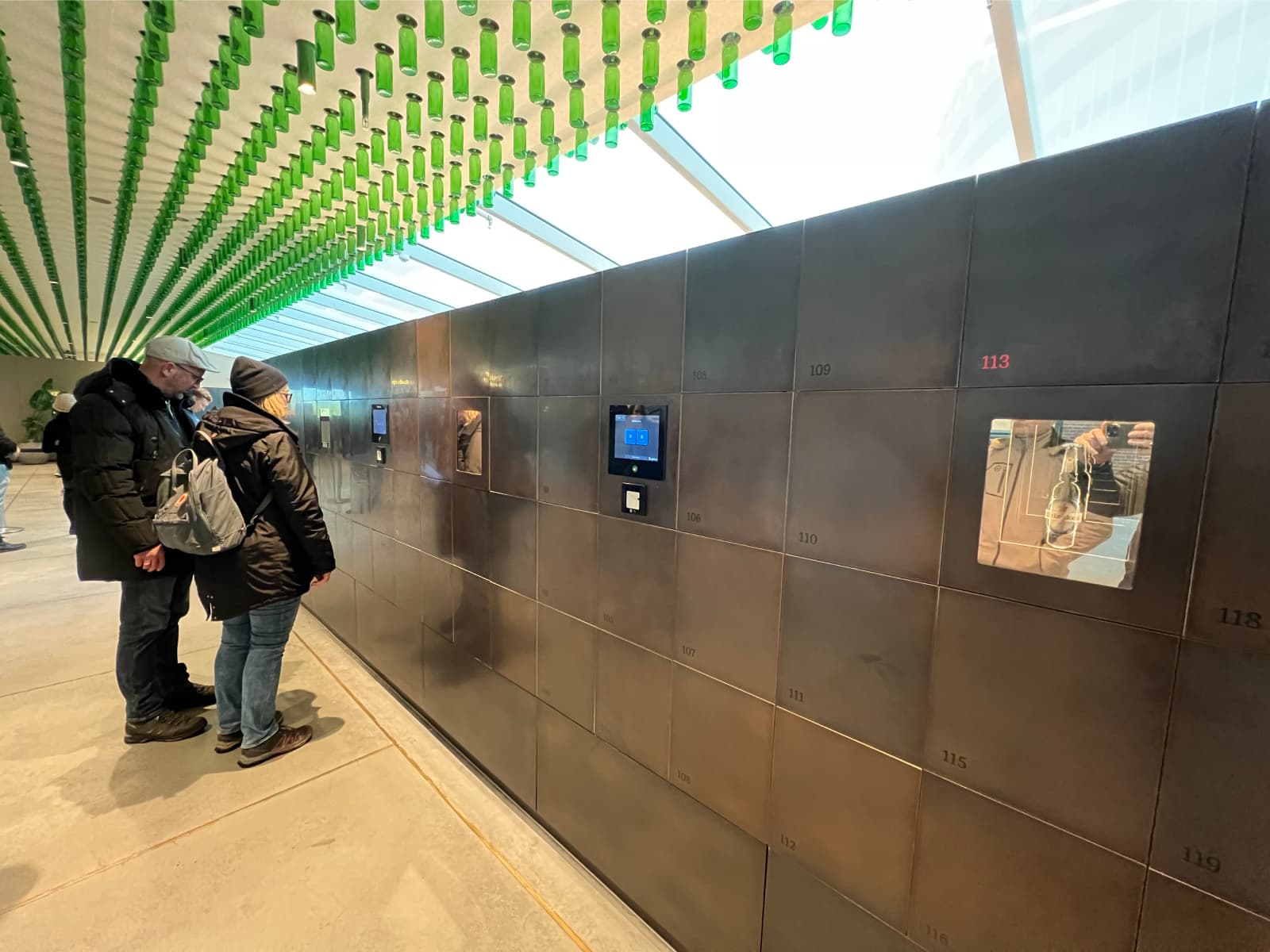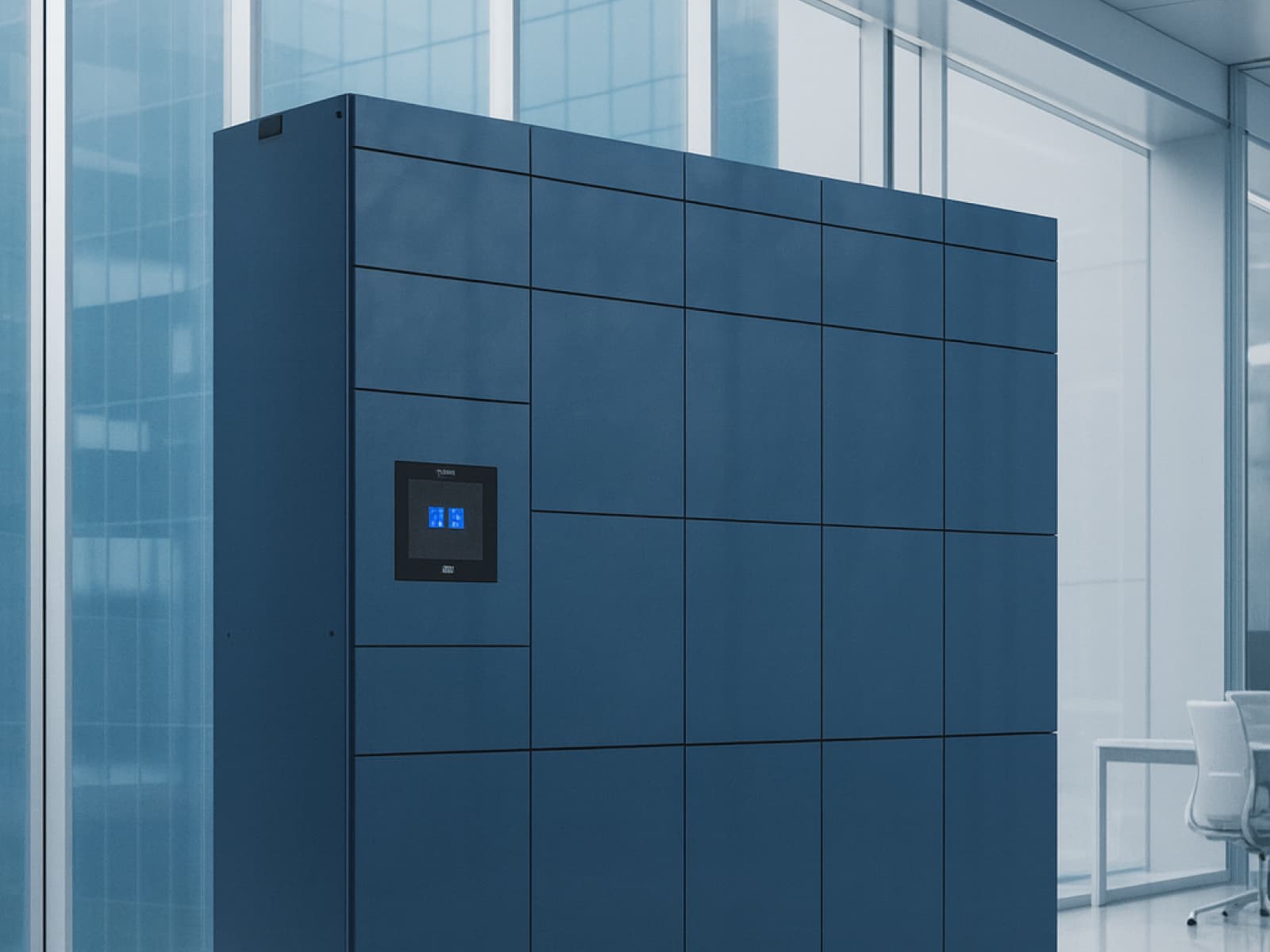Delve into the transformative realm of automated retail lockers and their impact on the shopping landscape. These innovative solutions blend top-tier security with unparalleled convenience, reshaping customer interactions within the retail space. Grasp the crucial role these automated storage systems play in modern retail, enhancing customer service and innovating in product management and handling.
Defining Automated Storage in Retail: A Closer Look
Familiarize yourself with the essence and functionalities of automated retail smart lockers - a progressive, customer-focused approach to managing retail transactions. These storage solutions signify a notable shift in the retail paradigm, offering a seamless, efficient way for customers to manage their shopping items. From placing orders to secure collection, explore how these lockers simplify and safeguard the retail experience.
Innovations Powering Automated Retail Storage Systems
Discover the cutting-edge technology underpinning automated retail lockers. Featuring IoT integration, biometric security, and sophisticated tracking systems, these lockers are crafted to refine and streamline retail operations. Investigate the amalgamation of these technologies and their collaborative function in delivering an exceptional retail experience.
Benefits of Integrating Automated Storage in Retail Environments
Analyze the extensive benefits brought forth by automated retail smart lockers. From elevating the customer experience by minimizing wait times to providing a hassle-free pickup service, these systems are pivotal in transforming retail operations. Discover their role in facilitating smoother retail workflows and contributing to heightened customer satisfaction.
Navigating the Adoption of Retail Automated Storage Solutions
Address the challenges encountered by retailers when implementing automated locker technology. Explore issues such as financial implications, integration with existing infrastructure, and user-friendly design considerations. Learn about effective strategies and solutions for successfully incorporating these advanced storage systems in retail settings.
Envisioning the Future Trends in Retail Automated Storage
Probe into the exciting future developments and the expected impact of automated retail lockers in the industry:
- These advancements suggest a future where automated retail lockers transcend basic storage functions, becoming integral to the retail ecosystem and driving innovation, operational efficiency, and customer contentment.
- AI and Machine Learning Integration: Future developments may see these lockers using AI and machine learning to provide tailored customer experiences and optimize locker allocation, a trend gaining momentum in markets like China.
- Enhanced Biometric Security: Incorporating advanced biometric systems such as facial recognition or iris scanning might become the norm, offering elevated security and personalization.
- Comprehensive Omnichannel Integration: As part of omnichannel retail strategies, these lockers could become essential touchpoints in the customer journey, ensuring a cohesive shopping experience across different channels.
- Sustainable Locker Designs: With sustainability at the forefront, future locker designs may incorporate eco-friendly materials, aligning with green retail initiatives.
- Diversifying into New Retail Areas: These lockers could branch out into various retail segments like grocery or specialty stores, and even temporary retail installations like pop-up shops.
- Advanced IoT Connectivity: Enhanced IoT integration could further streamline communication with other retail technologies, improving operational effectiveness and customer insights.
- Customizable and Modular Solutions: Future lockers might offer greater customization and modularity to fit diverse retail spaces and needs, enhancing both aesthetics and functionality.
Concluding Thoughts on the Impact of Automated Retail Storage Solutions
Summarize the substantial influence of automated retail lockers in the retail industry. Reflect on their role in introducing a new era of retail convenience and efficiency, and their potential to become a fundamental part of the retail landscape. Conclude by highlighting the innovative essence of these solutions and their capacity to forge a more dynamic, customer-centric, and sustainable retail future.
FAQ about Smart Lockers
How does the Keynius locker system work?
Keynius lockers combine smart electronic locks - smart locks and battery locks - with cloud-based software and optional local controllers via our Smart Home Teacher and Students.
Locks connect via LAN or Bluetooth to the Keynius platform, allowing users to authenticate, open, and manage lockers through touchscreens, RFID, PIN, or mobile app.
Admins control access rights, monitor usage, and configure lockers remotely via the Keynius Portal.
Can I customize the locker design and materials?
Yes. We are the only smart locking provider that owns every part of our supply chain, which includes all components, hardware, cabinetry, and software. This allows us to offer the most customizable smart lockers in the industry.
Lockers are available in multiple materials and colors:
Steel, powder-coated in standard RAL colors.
Wood-based panels with extensive Egger color finishes.
HPL laminate for high-durability indoor/outdoor use.
Outdoor waterproof steel version.
Each locker supports optional side panels, bases, benches, and color branding, or vinyl wrapping, as well as your selection of lock type, connection type, and many other custom add-ons.
Is the platform cloud-based or do I need local servers?
The Keynius platform is fully cloud-managed, requiring no local servers. Hardware like Smart Home Teacher/Student units and Battery Locks connect to the cloud via LAN or Bluetooth and are configured through the Keynius Portal or App.
What authentication/access methods are supported?
Supported authentication methods include:
PIN (capacitive keypad or mobile-assigned)
RFID (MiFare, HID, NFC, Apple Wallet)
Mobile app (BLE) for remote and Bluetooth access
QR code scanning (QR Reader IP65)
Payment terminals can optionally authenticate via debit/credit contactless systems.
How secure is the system and where is the data hosted?
Hardware is certified to CE, FCC, UKCA, and RoHS standards, with IP-rated protection up to IP65 for outdoor units.
Locks feature encryption, motorized mechanisms, and mechanical overrides for fail-safe access.
All data, including access logs and credentials, is stored securely in Keynius’ EU-hosted cloud environment compliant with European data protection standards.
Can Keynius integrate with our existing software?
Yes. The system offers open APIs for integration with HR, facility, payment, or booking systems. Payment terminals support remote configuration through the Terminal API.
View our existing integrations here.
What industries or use cases is Keynius suitable for?
Keynius offers a modular, flexible design which makes it compatible for nearly every industry and use-case.
Our most common sectors include:
- Corporate offices (personal storage, hybrid desks)
- Education (student lockers, IT device storage)
- Logistics and retail (parcel and click and collect)
- Leisure, hospitality, and healthcare (staff or visitor lockers)
What’s included in the setup and onboarding process?
Every project is different and requires its own scope, but we strive to offer a consistent and repeatable solution as much as possible to streamline our effectiveness and the quality of service we're able to deliver.
1. Design phase: Configure cabinet models, lock types, and finishes.
2. Installation: Connect Smart Locks to the Smart Home or cloud (plug-and-play).
3. Software setup: Locker walls created in the Keynius Portal; access rights assigned.
4. Training: Admins and users onboarded via the app guide.
5. Support: Remote monitoring, software updates, and Keynius support line.









%201.svg)
%201.svg)
